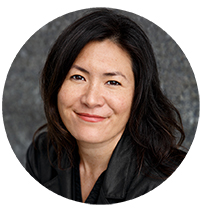3 Tips For Talking About Diversity
Last Thursday I attended a wonderfully engaging talk at California Institute of Integral Studies (CIIS) on “Big Ideas at CIIS...
Last Thursday I attended a wonderfully engaging talk at California Institute of Integral Studies (CIIS) on “Big Ideas at CIIS...
One of the most valuable things I learned in my training as a coach and psychotherapist was the distinction between intent...
This article is for those interested in learning more about microaggressions for the workplace, school, and life. History of the...
“A man has as many social selves as there are individuals who recognize him.” — William James, The Principles of...
This is part 3 of a three-part segment on unconscious bias and its impact. Read Part 1 and Part 2...
After reading the previous article, you may be thinking, if we have these unconscious biases we’re probably saying and doing...
As an Integral Coach and psychotherapist, I constantly see tensions around diversity in my client’s lives. Differences between gender, religion,...
Maybe you’re someone, who after going to a meditation retreat like at Spirit Rock, was able to completely let go of what was...
This is a question I get often in my practice. My rule of thumb is usually seeing if there’s unresolved...
Learning how to be with each other and with ourselves was not part of my childhood education. Maybe things are...

Angella Okawa, MA, LMFT (#83306) works with individuals, couples, and teams interested in taking their personal development to the next level. She also specializes in bringing mindfulness to the challenges of diversity and difference. Angella has a coaching and psychotherapy practice in the San Francisco Bay Area.
April. 14-15, 2018
The Culture Conference
Facilitated the group huddles
San Jose, CA
Jan. 23, 2018
Dialogue
Co-facilitated and co-designed a dialogue on Belonging
SF, CA
It is also about transforming language, creating alternatives, asking ourselves questions about what types of images subvert, pose critical alternative, and transform our worldviews and move us away from dualistic thinking about good and bad. Making space for the transgressive image, the outlaw rebel vision, is essential to any effort to create a context for transformation. And even then little progress is made if we transform images without shifting paradigms, changing perspectives, ways of looking. –bell hooks, 1992
